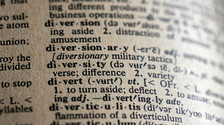How to distinguish "唔該晒" , "唔該" , "多謝哂" and "多謝" in Cantonese?
For those who learn Cantonese by jyuping
"唔該晒" = m4 goi1 saai3
"唔該" = m4 goi1
"多謝哂" = do1 ze6 saai3
"多謝" = do1 ze6
A lot of Cantonese learner may find it difficult the distinguish the different usage of the following daily expressions in Cantonese: "唔該晒" , "唔該" , "多謝哂" and "多謝".
You can use "唔該晒" or "唔該" when people are doing you some small flavors or they are doing their responsibility. For example, the cashier hand you your change or someone hold the door for you.
However, the usage of "唔該" is a bit different than "唔該晒". You can also use it as "excuse me!" For example, when you are about the get off the bus so you need people around you to move, instead of "唔該晒", you should use "唔該".
Also, the "晒" has a ending meaning so remember not to use it in a unfinished sentences.
For example, when you are asking for the waiter to add some water in the teapot, you should say "唔該,加水!" Don't say "唔該哂,加水!" because it sounds odd. This rule also apply to "多謝哂".
For "多謝哂" or "多謝", this phase is used when people give you a gift, buy you a meal or other occasions that they are not obligated to do such thing for you. For example: when your friend bought you a birthday present. You can say "多謝哂". If you want to address on the person who gave you the present, you can say "多謝你" which means it's YOU that I am thanking for.
I hope all of you enjoy this entries. Happy Learning! =D
Priscilla



